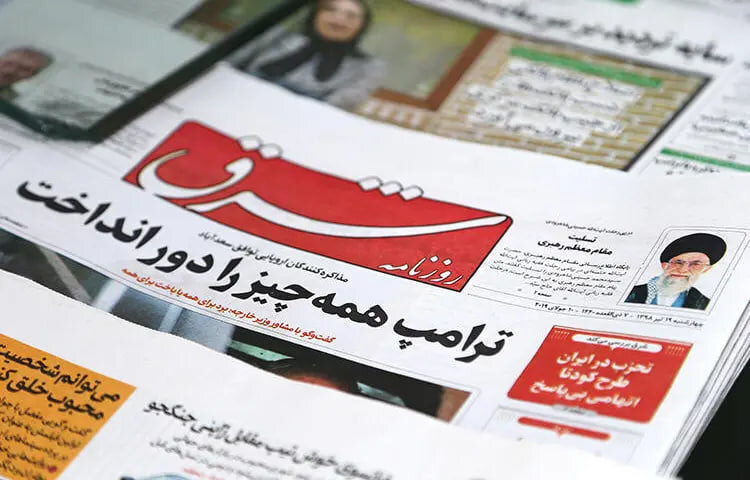A passenger for agreement

Shargh analyzed the visit of Oman’s Minister of Foreign Affairs Sayyid Badr Albusaidi to Iran.
It wrote: The meeting and consultation between Albusaidi and his counterpart Amir Abdollahian coupled with Nasser Kanaani’s keywords such as "constructive agreement and reception of a constructive approach" indicate that Albusaidi carries a message for Iran on behalf of the Americans, which is either related to the exchange of dual-national prisoners or the nuclear agreement or both; however, the observers emphasize that in the current situation and considering the positions of the authorities in Tehran and especially in Washington, the bolder option is Muscat's effort to release the dual-national prisoners. Negotiating about the fourth prisoner shows that Raisi's positive outlook has prevailed over the voices of the opposition, and now the talks between Tehran and Washington are about the exchange of four prisoners, and Albusaidi may have a message for Tehran in this regard. The Minister of Foreign Affairs of Oman, recently and just before his departure to Tehran yesterday (Monday), had spoken about the great achievement in the negotiations between the U.S. and Iran and how close they were to reaching an agreement on the prisoners as well as the nuclear program. Now it should be seen how this trip will shape the negotiations.
Iran: Deadlock in Tel Aviv's strategy toward Iran
The Iran newspaper wrote in a note: The course of political changes in Iran, especially the resumption of relations between Iran and Saudi Arabia, was against the moves that the authorities of the Zionist regime had been following to normalize relations with Arab countries, especially since Tel Aviv had pinned high hopes on starting relations with Riyadh and had launched intensive Iranophobia project in this campaign. But the agreement between Iran and Saudi Arabia disrupted all these scenarios and Israel was placed in a strategic deadlock. The situation has caused this regime to be in one of its most isolated periods in its history. This is while it cannot count on America, which is facing many challenges in the Middle East and Asia. Such developments have made issues more complicated for Israel to change the course of events against Iran. In addition, the Zionist regime is caught in social, political, economic and security dilemmas. Uprising in the occupied West Bank and the political disputes in Tel Aviv has made Israel feel very isolated.
Resalat: NATO wrong addresses
In its editorial, Resalat addressed the recent meeting of NATO leaders and the dispute between the members. It said: The internal differences of NATO members over the analysis and even the description of the Ukrainian battlefield has reached its climax. Some NATO members believe that the war in Ukraine is no longer a "purposeful and controllable crisis" by the West and that it is becoming NATO's "Achilles’ heel". In the face of these disputes, the NATO leaders consider creating false narratives as the only option to divert public opinion from the current realities. Focusing on the name of Iran in the final statement has been done with this purpose. But Iran’s foreign policy strategies and its security red lines will not change by issuing such statements! In such a situation, it is better for the 30 members of the North Atlantic Treaty Organization, instead of projecting the bitter realities that they have created in the international system, to be accountable for their continuous injustice against the Iranian nation! Iranians have not forgotten the role of NATO countries in applying the “maximum pressure” strategy (introduced by the Trump administration) against our country. Of course, the Iranian nation will not let these actions go unanswered.
Vatan-e-Emrooz: A helping hand to clear the borders
In an analysis, Vatan-e-Emrooz discussed the visit to Tehran by Pakistan’s Chief of Army Staff and the efforts by the two countries to fight regional terrorism. It wrote: Tehran and Islamabad, as two important players in the region and the Islamic world, share common goals and positions on many regional issues. During negotiations, the latest state of relations between the two countries in terms of military, security, peace and stability in the region and the Islamic world, and ways to develop relations were discussed and agreed upon by the parties. The expansion of military and defense cooperation between Iran and Pakistan and improving security in common borders are a significant development that has been on the agenda of the two countries for the past few years. Such cooperation coupled with the interaction among military officials of the two countries will help expand economic relations and improve security at borders.

Leave a Comment